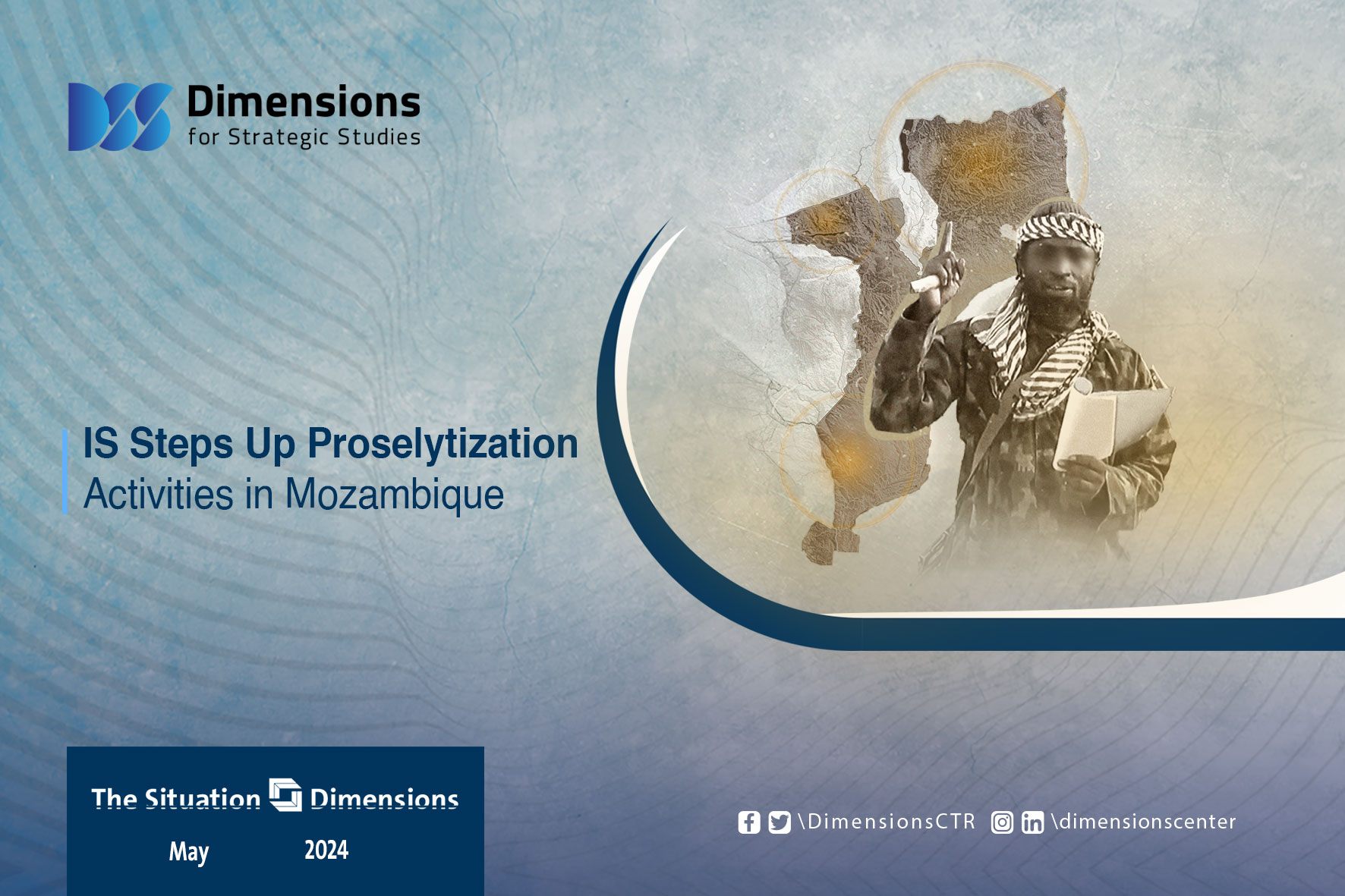
IS Steps Up Proselytization Activities in Mozambique
2024-05-202127 view
Jihadist organizations have long sent preachers into the field to promote their ideas and ideologies, a strategy that is a primary means of attracting support and bringing new recruits into their ranks. However, these efforts are usually preceded by the existence of sleeper cells able carry out armed operations to expand the group’s influence and territorial hold.
A review of the Islamic State group’s preaching activities in Syria and Iraq reveals that they expanded rapidly between 2013 and 2017, then declined and almost totally disappeared as the organization lost its territorial strongholds in both countries. Starting in 2022, IS began proselytizing on a small scale in West and Central Africa (Burkina Faso, Mali and Nigeria), stepping up those activities in 2024 as it took control of more areas.
Since early 2024, IS has stepped up its proselytizing activities in Mali and Mozambique, showing the extent of its presence across large territories in these countries, where its sharia and da’wa (proselytization) offices interact with the local population and preach the group’s ideology. These activities clearly indicate that the group is confident in its ability to move freely, with little fear of being targeted by government forces or local militias, due to their distance from the areas in which the jihadists have a presence.
The group’s da’wa activities include religious speeches after the obligatory prayers, Friday sermons, community events and competitions in memorizing the Quran, as well as visits to certain Christian villages that the organization seized in February and March 2024, to urge residents to convert to Islam or demand that they pay the jizya, an Islamic tax on religious minorities.
In Mozambique, the jihadists have waged both an armed offensive, expanding into various parts of the northeastern province of Cabo Delgado, especially the Macomia and Chiure regions, and an outreach campaign. From January 2024 onwards it has it deployed dozens of preachers on small fishing boats to visit villages by river. As the fighting spread south in the Chiure region and IS took control of Quisanga and Mocimboa da Praia between January and April, it also stepped up its proselytizing activities in villages of those areas.
The jihadists’ messaging focuses on the importance of learning about the group’s vision of Islam and its basic concepts, such as monotheism, loyalty and disloyalty. They also warn the population against supporting the “infidel” Mozambican government or helping Christian civilians whose villages the jihadists have attacked, as well as urging civilians to join their ranks, promising them both spiritual reassurance and material rewards, in the form of battlefield loot and financial incentives from IS coffers. The organization also seeks to achieve other goals through proselytization campaigns, first and foremost improving its relations with local residents, particularly prominent figures in society.
Proselytization is thus a major soft power tool used by jihadist groups to attract new members and establish with the local population. Its spread also indicates the level of stability in areas these groups control or where they are active. The spread and frequency of public da’wa activities reveals the jihadists’ level of confidence that they can operate openly in relative security in the areas of Mozambique that the group now controls. Tracking such activities, whether in Mali, elsewhere in the Sahel or in Mozambique, helps build an understanding of how the organization may act in the near future.





